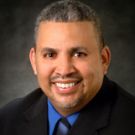If you remember the movie, “The Matrix” (1999) you’ll likely remember the “Oracle.” A character able to see into the future, a power used to advise and guide others. In many ways, leaders are viewed as oracles. Leaders, often, find, and fix, problems before they happen. Leaders can often see the problem wherever they go, no matter how hard it tries to hide. They’re so good at fixing problems that everyone seeks their advice. They’re called for emotional support, and financial, relationship or spiritual advice. Whatever the problem, they get the call. Whenever things go wrong or need improvement, we turn to them.
Author Michael Flower (2008) notes the ancient Greek considered oracles to be portals the gods used to speak directly to people. The Bible Dictionary uses oracle to describe the most holy place in the tabernacle (Psalm 28:1-2). The term also described people that were believed could speak the word of God as a response to a human inquiry or prayer (2 Samuel 16:23, NLT). Merriam-Webster defines an oracle as “a person giving wise or authoritative decisions or opinions.” Using this definition, we all use oracles or experts.
We go to experts for the answers to our doubts and fears, questions, and problems. We’d call a mechanic, electrician or plumber, experts in their fields, if we have car, electrical or plumbing problems. When we have an illness, we want the physician to identify and treat our problem. However, sometimes we go to the oracle (physician) looking for a quick fix. If you doubt that, consider that according to the American Society for Plastic Surgery (ASPS), “15.6 million people underwent surgical or minimally invasive cosmetic procedures in the United States in 2020.” The article lists the top five cosmetic procedures as breast augmentation, liposuction, nose shaping, eyelid surgery and tummy tuck. As American surgeon and author, Atul Gawande (Better, 2008):
“We always hope for the easy fix: the one simple change
that will erase a problem in a stroke. But few things in life work this way.
Instead, success requires making a hundred small steps go right –
one after the other, no slipups, no goofs, everyone pitching in.”
In the Hebrew, another translation for oracle is “burden.” Oracles delivered prophecy or judgement received from God. They were expected to predict and solve problems and always be right. There are many similarities between the leader and the oracle. The leader’s effectiveness is influenced by our perception of their trustworthiness, credibility, and confidence. “Breakdowns can happen when a leader is not able to handle job responsibilities, answer questions in regard to the organization, and problem solve” (Chng, Kim, Gilbreath & Anderson, 2018).
Do you think Jesus would have been met by so many crowds if people didn’t believe He could cure them? The crowds gathered because of their trust and confidence in Jesus’ ability to cure them. He had credibility and the crowd believed He could solve their problems. In the Problem-Solving Jesus, author Nathan Hitchens says, “sure, Jesus can meet you where you are and solve the problems you have, but if that’s your Jesus, it says more about you than about Jesus.” Hitchens asked a group of friends, “What problem does believing in Jesus solve for you?” Among his friends, he noted:
“Theological friends said Jesus solved technically precise theological problems.
Intellectual friends said Jesus solved intellectual problems.
Practical friends said Jesus solved everyday problems.
Apparently, Jesus solved what they needed him to solve.”
So, what’s the problem with bringing our problems to God? Absolutely nothing! We’re encouraged to bring our problems to God (Philippians 4:6, CEV). In fact, Matthew 7:7 (NIV), tells us:
Ask and it will be given to you;
seek and you will find;
knock and the door will be opened to you.”
But when we cast God in the role of the “Oracle”; someone to answer our questions or quickly fix our problems, we shouldn’t be surprised that our prayers go unanswered. The Meaning of Matthew 7:7 tell us:
“God has promised to answer all the prayers of those who
diligently seek Him, but too often our prayers are selfish or
soulless. Too often our calls and half-hearted [prayers], lack
passion, or simply become a formula to be followed.”
James 4:3 (ESV) explains it simply: “You ask and do not receive, because you ask wrongly, to spend it on your passions.” Following and leading like Jesus requires competence, faith, and the right motivation. In my experience, leaders too often succumb to the “Oracle Syndrome.” They’ve bought into the hype, that they know all, see all and can fix all. They’re too quick to provide the answer instead of teaching or developing the skill. Educator, Roger Lewin says:
“Too often we give our children answers to
remember rather than problems to solve.”
Challenge: Remember, the Chinese proverb, “Give a man a fish and you feed him for a day. Teach a man to fish and you feed him for a lifetime.” As leaders, the most important thing we can do, beyond setting the example, is to develop those we lead. The next time someone brings you a question or problem, ask what have you done to answer or solve this problem? Don’t provide the answer, teach the solution. As Luke 6:40 says:
“The student is not above the teacher, but everyone
who is fully trained will be like their teacher.”
Learn more about leading like Jesus through Lead Like Jesus Revisited.










